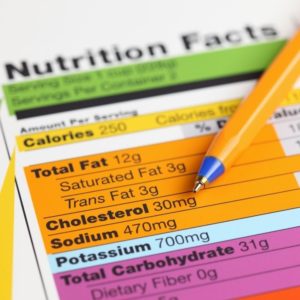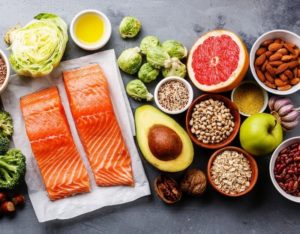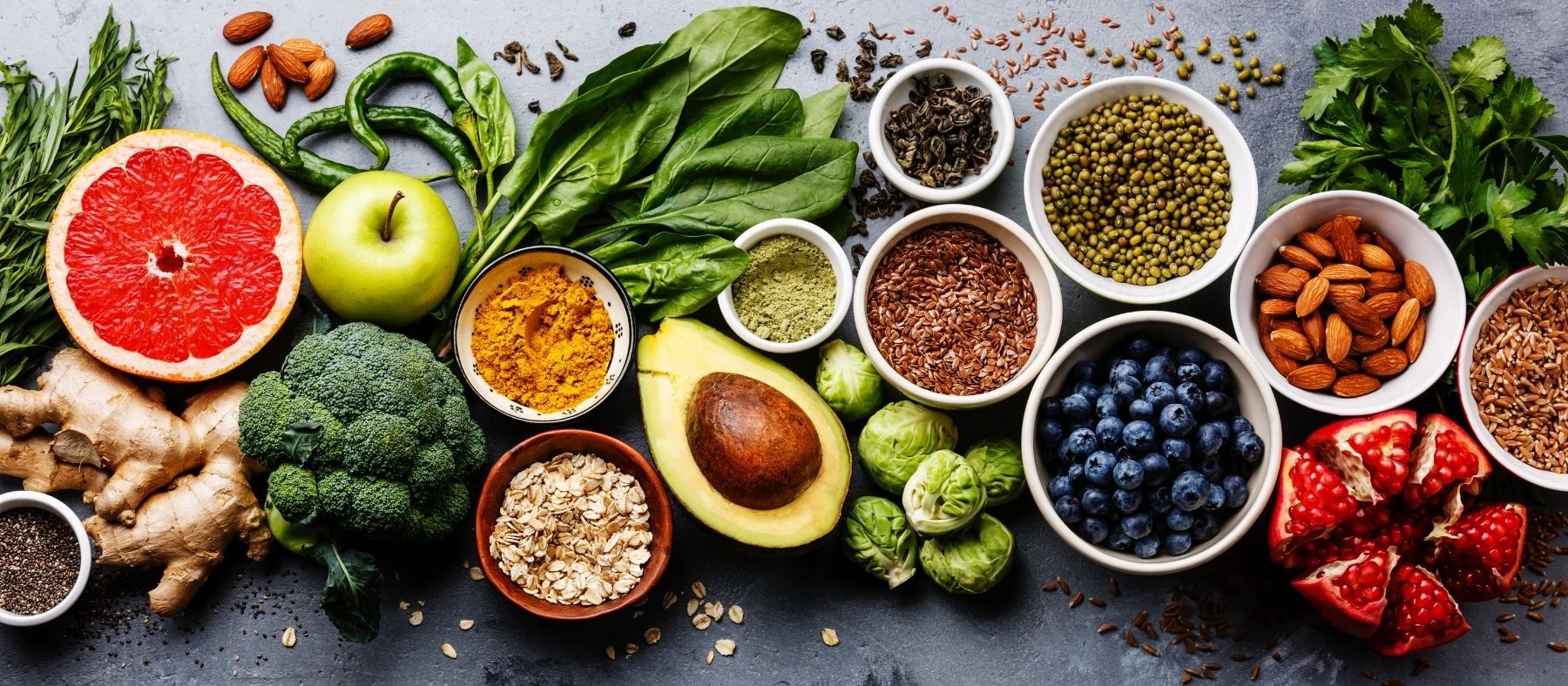 It has been determined that the role of nutrition in mental health is just as important as it is in taking care of our bodies. You have probably heard the saying, “you are what you eat.”
It has been determined that the role of nutrition in mental health is just as important as it is in taking care of our bodies. You have probably heard the saying, “you are what you eat.”
Research shows that what we eat affects both our physical health and mental health as well as our mood. Nutrients in the foods you eat affect how your brain and body function.
Some nutrients help improve and stabilize our mental health, while others can make us feel down or anxious.
You can improve your mental health by knowing what to eat and what foods to avoid.
Nutrients for Better Mental Health
What and how you eat has a direct effect on mental well-being. The Academy of Culinary Nutrition and Mind, a British non-profit organization dedicated to mental health awareness and treatment, help educate people on why eating healthy is important for mood.
Before you grab something to eat or skip a meal, consider these facts:
- Low blood sugar levels are linked to anxiety and depression.
- Healthy fats are essential to the nervous system and brain function.
- Amino acids in protein are the building blocks of neurotransmitters, which help regulate mental well-being.
- B Vitamins help reduce the effects of stress and support the nervous system.

- Caffeine can give you a quick boost but make you feel depressed, disrupt your sleep, and cause withdrawal symptoms.
- Staying hydrated is necessary for mental clarity.
Many foods contain sugar, which the body uses for energy. High sugar foods that give a burst of energy can lead to a drop in blood sugar levels because the body processes them quickly.
Complex carbohydrates and proteins, along with eating regularly, help to stabilize blood sugar levels.
Healthy fats, like Omega 3 and Omega 6, keep your brain functioning so it can use neurotransmitters and nutrients to stabilize and improve mental health.
B Vitamins also help form neurotransmitters. Caffeine is a stimulant that causes negative emotional and physical effects after its stimulant effect wears off.
When you aren’t well hydrated, you may have trouble thinking clearly, affecting your mental health.
Food to Boost Mental Health
The University of Michigan health department offers a list of mood-boosting foods. Dietitians there recommend eating a variety of healthy foods to improve your mental health.
Instead of reaching for junk food when you’re feeling down, try these foods instead:
- Turkey
- Nuts
- Spinach
- Whole Grains
- Legumes
- Fruit
- Dark Chocolate
- Salmon
- Flax Seeds
- Chia Seeds
Turkey, nuts, and spinach all contain tryptophan.
 Tryptophan is an essential amino acid that your body can’t make from other nutrients.
Tryptophan is an essential amino acid that your body can’t make from other nutrients.
It’s a building block of serotonin, a neurotransmitter that affects appetite, sleep, and impulse control.
Spinach, nuts, whole grains, and legumes contain magnesium, which helps reduce anxiety.
Fruit and dark chocolate, in moderation, help maintain blood sugar levels better than processed, high sugar treats.
Salmon, flax seeds, and chia seeds have Omega # fatty acids to reduce inflammation and improve mental disorders.
Foods to Avoid
Some foods add calories to your diet without offering the nutrients your brain needs, ruining your mental health.
Researchers at Columbia University caution people to avoid these foods:
- Bagels
- Soda
- Margarine
- Non-organic Celery
- Canned Soup
- Agave Nectar
- Deli Meat
Bagels contain simple carbohydrates that cause low blood sugar levels after your body processes the energy from them.
Drinking soda can lead to obesity and diabetes, which have been linked to lower brain volume.
 Margarine contains trans fats, which aren’t healthy for your body and are linked to depression.
Margarine contains trans fats, which aren’t healthy for your body and are linked to depression.
A recent study found that non-organic celery was covered in fifty-seven different pesticides, twelve of which are toxic to the brain.
The chemical Bisphenol-A (BPA), found in canned soup, is linked to anxiety, depression, and poor self-control.
Agave nectar is between 70% to 100% fructose, raising blood sugar levels quickly and then allowing them to drop and lead to anxiety and depression.
Deli meats are often highly processed and contain meat from animals who don’t get a natural diet.
Low meat quality doesn’t offer enough Omega 3, and the food coloring used in many deli types of meat have been linked to mental disorders.
When you are hungry, what you chose to eat affects your mental health.
Healthy foods rich in nutrients can feed your brain, while processed sugar, trans fats, and chemicals can ruin mental well-being.
Foods and Beverages That Can Increase Anxiety
 If you have problems with issues such as anxiety or depression, you may blame the environment for triggering these feelings.
If you have problems with issues such as anxiety or depression, you may blame the environment for triggering these feelings.
However, it is more important to take a look at what you are eating and drinking.
In fact, what you put in your body can have a far-reaching effect on the body’s chemistry and may make your anxiety or depression worse.
Here is a list of some foods and beverages you may want to avoid:
Beverages to Consider Avoiding:
Coffee: Unfortunately the caffeine that is found in coffee can worsen anxiety. Coffee constricts the blood vessels and that is why you get the jittery feeling after drinking it.
Another problem with caffeine is that it can cause insomnia and other sleep disorders.
As well, there is another problem with coffee is that it can inhibit Vitamin C from being absorbed by the body.
This is an important nutrient when it comes to body and mind functions.
Colas and Other Soft Drinks: Unfortunately even sugar-free and caffeine-free beverages can make mental health issues worse.
 When it comes to colas, the high-acid content causes a more acidic environment in the body. Because of this, both calcium and magnesium can be leached from the bones.
When it comes to colas, the high-acid content causes a more acidic environment in the body. Because of this, both calcium and magnesium can be leached from the bones.
As well, both calcium and magnesium are very important for the proper functioning of both the brain and muscles in the body.
If you think that clear, sugar-free, caffeine-free soft drinks are better, you would be wrong. The problem with these beverages is that they contain artificial sweeteners such as aspartame.
The result is that artificial sweeteners can cause or worsen psychological conditions such as anxiety.
Alcohol Drinks: One small glass of wine a few days out of the week is not the problem.
However, drinking too much alcohol can actually worsen mental health issues because it can inhibit the absorption of certain nutrients.
Food to Consider Avoiding:
Chocolate: No, not chocolate! Although often thought of as a feel-good food, it unfortunately also contains significant amounts of caffeine as well as a lot of sugar.
As discussed in the list above both caffeine and sugar can make us more anxious.
Too Much Sugar: You will find that many nutritionists believe that anything over five tablespoons a day of refined sugar is a problem.
 Unfortunately, there is sugar in just about everything we eat making it hard to figure out how much we are actually eating.
Unfortunately, there is sugar in just about everything we eat making it hard to figure out how much we are actually eating.
There is so much hidden sugar in foods, everything from cereals to frozen foods. Did you know that five tablespoons are just one tablespoon more than a quarter of a cup?
Why do you think sugar is a problem? Well, sugar depletes Vitamin B6. This particular vitamin is another important nutrient that is crucial for proper hormone function.
As well it helps to metabolize sugar.
Refined Flour: Did you know that refined flour acts no differently in the body than if you ate sugar? It doesn’t have any of the important nutrients such as fiber, or essential fatty acids.
Processed Foods: The problem with processed foods is that they are full of preservatives, artificial colors, and flavors (MSG). The unfortunate part of these ingredients is that they can easily pass through the blood-brain barrier. The result is compromised cognitive functions.
Another ingredient in processed foods is the various food colorings that can often be found in margarine, gum, and candy. Food coloring can disrupt the hormone balance in the body.
Why Diet Might Be a Big Deal for Mental Health Video:
There is more and more information on how diet affects not just our physical health, but our mental health as well. In fact, studies have shown the importance of diet when it comes to brain development.
Improper nutrition points to poor mental health whereas proper nutrition helps to promote positive mental well-being.
Nutrition may not reduce all issues of mental health, but it can play a significant role in modifying the risks.
As well proper nutrition can counteract any adverse physical health that can be associated with mental health issues.
Nutrition and mental health is an important part of our well-being today.
As we learn more about the correlation between good nutrition and mental health the future is brighter.
Many people don’t see that food plays a vital role in a person’s health. Even many health care practitioners don’t believe food can affect our well-being.
When it comes to the building blocks for keeping our brains healthy, we have to realize that the right nutrition plays an important role.







